Mental and physical fatigue due to long working hours, lack of adequate rest periods and not being properly fed / hydrated could lead to an accident, and also cause increased levels of illness and stress. Whilst often manageable over short periods of high demand, prolonged periods of such working can have cumulative effects which are less easy to manage.
What Can Go Wrong?
- Mental fatigue – over the short term could lead to a lapse in concentration, reduced reaction time and poor decision making over safety critical issues. Fatigue is a known contributor to a high proportion of road traffic accidents and you are also much more likely to commit a driving offence.
- Heightened stress levels – over the long term could potentially lead to physiological and behavioural changes e.g. alcohol abuse.
- Physical fatigue – over both short and long term could lead to increasing risk of musculoskeletal problems / injuries.
Legal/���˿��� Requirements
In summary the ���˿���’s “Guide to the Working Time Regulations” stipulates the following limitations in relation to working time and the entitlement for rest periods:
- Working time should not exceed an average (over a defined reference period) of 48hrs per week, unless the worker has ‘opted out’ (which is the case for most ���˿��� contracts).
- an uninterrupted rest break of not less than 20mins if daily working time is 6hrs or more.
- an uninterrupted daily break of not less than 11 consecutive hours in each 24hr work period.
- an uninterrupted rest period of not less than 24hrs a week; or two uninterrupted rest periods, each of 24hrs, over any two week period; or one uninterrupted rest period of 48hrs over two weeks.
- for night workers (meaning at least 3 hrs of work between 23:00 and 06:00), working hours should not exceed 8hrs in each 24hr period and these hours are to be recorded. Those who regularly work these hours are to receive regular health assessments.
Control Measures
General requirements
To minimise the risk of fatigue and possible accidents, when scheduling the work of others, managers should ensure:
- the hours required to complete the work task(s) are realistic and reasonable, and broadly in line with the scheduling guidelines described above, subject to defined contract or local derogations.
- that where it is reasonably foreseeable that the working hours will routinely go outside of these scheduling guidelines, a Senior Manager (not directly involved in preparing the schedule) should approve the schedule having due regard to operational needs and the safety and wellbeing of those affected.
- no-one has to rush to get the job done.
- no-one needs to regularly miss rest or meal breaks.
- scheduling conflicts are avoided wherever practical e.g. a 'late' followed by an 'early'.
- where the work is known to require deviation from the scheduling guidelines, these are discussed and agreed with staff ahead of the work commencing.
- no-one should be required to carry out complex or demanding tasks which present significant risk of injury (e.g. work at height, stunts, driving) when they can reasonably be expected to be tired or not fully alert.
- Compensatory rest or time off in lieu (TOIL) is provided for work in excess of the daily or weekly / fortnightly rest period entitlements.
Driving
- Driving to and from location (i.e. not to their normal place of work) is to be considered as ‘working hours’ in the schedule. If travelling directly to location from home, only those hours which are in excess of their normal commuting time are to be considered as working hours (Nb. departmental variations exist)
- Subject to the working hours described above and/or where the worker can reasonably be expected to become excessively fatigued (e.g. following repeated over-runs, demanding nature of work, long haul travel), they are either to be driven home by those not affected by fatigue or be given an ‘overnight’ stay rather than drive themselves, or others, back to base / home.
Production shoots
- Those scheduling long period shoots, especially those involving a change of time zone and / or long haul travel, are to ensure the schedule remains reasonable and realistic, allowing an adequate period for acclimatisation and rest on arrival, and throughout the shoot, to enable crews to work safely and without undue accumulated fatigue.
- Managers on location are to monitor the working hours and stress levels of their team to ensure they remain reasonable and in broad agreement with the scheduled working hours. When seeking feedback from teams, managers should be wary of personal motivations to do a good job clouding people’s ability to judge whether they can continue to work safely. The difference between scheduled and actual hours should be known and fed back to those responsible for scheduling, ideally in wash-up meetings where all have a chance to contribute.
- On return from long period shoots (more than 1 week away from their normal place of work), workers are to be given the option to take any accrued time off in lieu (TOIL) to fully recover prior to returning to normal work. The TOIL policy should be agreed ahead of shoots.
- All ‘workers’ (staff, contractors, freelancers and also contributors) are to be encouraged to make known to their manager on location if they believe their working hours are either unreasonable or their levels of fatigue are such as to give cause for concern. Workers should be aware that they can speak in confidence to HR or their Safety Adviser if they feel that their working hours are excessive / unfair.
- Where practical, productions are to make enquiries of the working hours of contracted workers (freelance crews, talent) immediately prior to them joining the production to make sure they arrive fit and able to deliver against the schedule whilst continuing to meet the ���˿���’s guidelines for working time on productions.
Division Specific Issues
Journalism
- For long-running and fast-developing news stories, managers and deployers should carefully monitor working hours of teams in the field and, where necessary, send relief / additional presenters and crews to help cover the story and protect the health and wellbeing of all.
FAQs/Did You Know?
- One of the myths surrounding fatigue is that in an emergency the adrenaline surge gets people through. The truth is that emergencies aren't the problem.
- Exercise has little or no effect on alertness. Indeed, people who have been exercising / doing hard physical work are more likely to become tired and sleepy.
- Listening to the radio / music does not make people more alert it just stops them realising how tired they are.
Recommended links
-
[Gateway]
-
Personal Health & Wellbeing topics
-

Drugs and Alcohol
The ���˿��� has an agreed Policy in relation to Drugs and Alcohol. This guidance is extracted from that policy. In the case of doubt the ���˿��� Drugs and Alcohol Policy has precedence. -
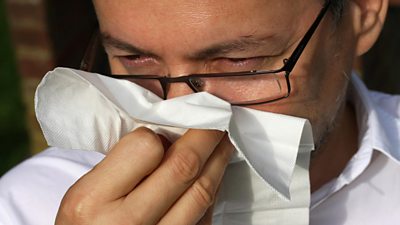
Influenza
A guide to influenza, or 'flu', for individuals seeking general advice or during an epidemic or pandemic situation. -

Mental Health
Guidelines relating to mental health providing guidance and advice. -

Night Filming and Recording
A guide to working at night on location between sunset and sunrise (approx 2300 - 0600). -

Night Shifts and Shift Working
How to minimise the effects of night shift working. -

Pregnancy
A guide to health and safety considerations for pregnant and nursing mothers. In general day-to-day work activity is not harmful in pregnancy. There are, however, some work factors that can cause harm and need to be considered. -

Pressure and Stress
A guide to recognising and managing pressure and stress. -
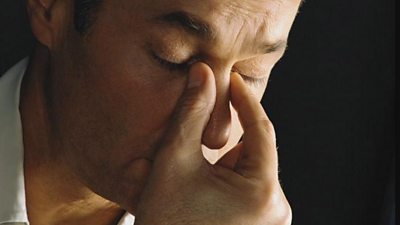
Tiredness and Fatigue
A guide to the scheduling and management of your team’s working hours to help safeguard them from the effects of fatigue.
Vehicle topics
-
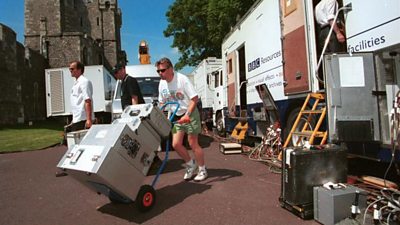
Broadcast Vehicles
A guide to satellite vehicles, radio cars and uplink vehicles -

Driving & Cycling for Work
Our safety guideline to driving safely and legally on the public highway for the purposes of ���˿��� work. -

Safety Short: Vehicle checks
���˿��� Safety's Safety Short on Vehicle Safety Checks. -

Tail Lifts
���˿��� Standard and Guidance on the safe use of vehicle tail lifts -

Tiredness and Fatigue
A guide to the scheduling and management of your team’s working hours. -
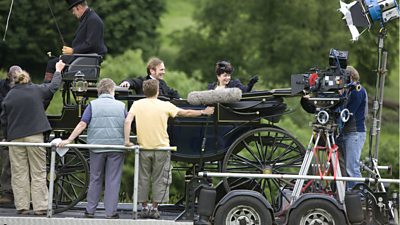
Vehicles: Recording in, from and around
A guide to recording a driver or passengers from within a moving vehicle. -
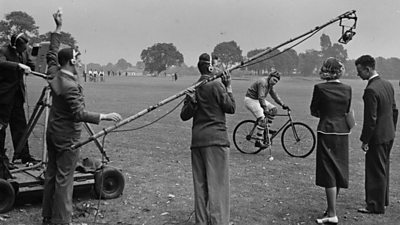
Vehicles Used in Sports Coverage
A guide to the safe use and provision of vehicles used in sports coverage, including quad bikes and golf buggies. -
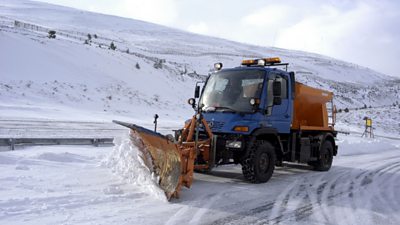
Winter conditions - driving and location safety
This safety guidance covers the additional risks to driving during harsh winter conditions in the UK.
More from SSR
-
Your platform to record accidents, risk assessments, assurance monitoring and inspections
-
Safety Equipment Stores
Just one number to call: 020 3614 5155 -
���˿��� Safety Guidelines
An A-Z of ���˿���'s Health and Safety Guidelines -
Safety Advice Line: 0370 411 0464 Email: safety@bbc.co.uk
- A-Z of ���˿��� Safety Guidelines
- Accident Reporting and Investigation
- ���˿��� Health & Safety Policy
- Contractors (incl. vetted lists)
- Contributors
- Fire Safety
- Freelancers
- Independent Production Companies
- Risk Assessment
- Safety Alerts
- Safety Responsibilities
- Safety Training
- Sets & Premises Safety Guide
Events guidance - key links:
- Exhibitions
- General Guidance
- Indoor Location Recce Checklist
- Outdoor Location Recce Checklist
- Major Incidents & Emergency Planning
- Marketing and Promotional
- Noise Exposure
- Planning and Management
- Responsibilities
- Responsibilities Form
- Laser Lighting Effects
- Strobe Lighting
- Temporary Stages and Rostra
Health topics - key links:
- (���˿��� network only)
- Contributors Fitness to Participate
- Display Screen Equipment (DSE)
- (���˿��� network only)
- First Aid and Welfare on Location
- International Travel - Risks & Health
- Manual Handling
- Mental Health: ���˿���page
- (���˿��� network only)
- Personal Health and Wellbeing
- Pregnancy
- Psychological Trauma Support & Trauma Risk Management (TRiM)
- Tiredness and Fatigue
- Travel Health Contacts
���˿��� High Risk - key links:
- CBRN and Industrial Spills
- Covert Filming
- Crisis Management and Security Support
- Demonstrations, Protests and Crowds
- Disaster Coverage
- Door Stepping
- (���˿��� network only)
- (���˿��� network only)
- Public Order
- Safety Equipment Stores
���˿��� Journalism - key links:
���˿��� Productions - key links:
- Aerial Filming and Airfields
- Animals: Displaying and handling for performance
- Boats: Working on
- Children and Young People
- Driving
- Electrical Equipment and Systems
- First Aid and Welfare on Location
- Food Safety (Cooking and Catering)
- Remote Location Working
- Roads and Streets: Working by
- Security of Productions on Location
- Stunts
- Tiredness and Fatigue
- Unmanned Aerial Systems (UAS aka Drones)
- Vehicles: Recording in, from and around
- Working at Height: Mobile Elevating Work Platforms
- Working at Height: Tower Scaffolds
���˿��� Radio - key links:
- (���˿��� Network only)
���˿��� Security - key links:
���˿��� Sport - key links:
About this site
This site describes what the ���˿��� does in relation to managing its health, safety and security risks and is intended for those who work directly for the ���˿���.
It is not intended to provide instruction or guidance on how third parties should manage their risks. The ���˿��� cannot be held liable for how this information is interpreted or used by third parties, nor provide any assurance that adopting it would provide any measure of legal compliance. More information
Some links on this site are only accessible when connected to the ���˿��� network
